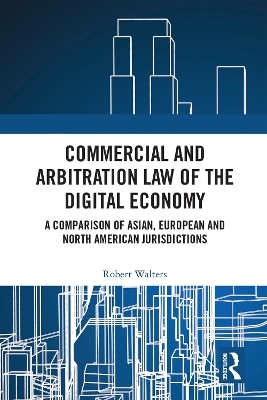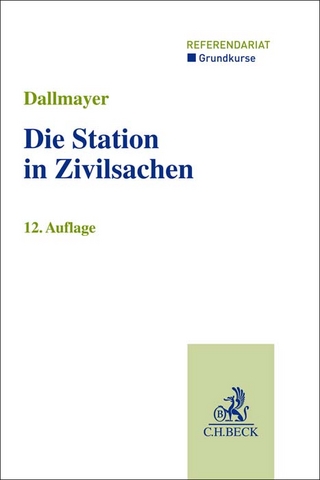
Commercial and Arbitration Law of the Digital Economy
Routledge (Verlag)
978-1-032-44328-7 (ISBN)
This book discusses the importance of the digital economy and its most pressing challenge: the onset of quantum and critical technology. It looks at how its implementation, either on its own or coupled with artificial intelligence, impacts commercial and arbitration law.
International trade and investment are increasingly being integrated within national security policy and the law to protect the nation state. A failure to safeguard personal and commercial data will allow other state and non-state actors to set the rules that do not align with the values of the rule of law and transnational rules-based system. This book argues that it is necessary to establish a principles-based approach to governing the development and use of these technologies. Chapters touch on the application of smart contracts, arbitration, as well as mergers and acquisitions and their potential weaponisation in the digital economy due to their ability to transcend national security. Elements of intellectual property, particularly patents and trademarks, and how international legal instruments have directed national law-making are also explored.
This is a useful reference for governments, regulators, legal, technologists and policy experts. This is also of interest to scholars looking at personal and commercial data in relation to intellectual property, contracts and international commercial arbitration law.
Robert Walters is a solicitor, international arbitrator and legal scholar specialising in transnational commercial and private law across the digital economy. He has been engaged by national governments to address commercial and private law matters and develop legal-policy programs for the digital economy.
Table of Contents
CHAPTER 1. DEFINING THE DIGITAL ECONOMY
1.1 Introduction
1.2 Measuring the Digital Economy
1.3 Regional Institutional Law
1.4 Transnational Investment Law
1.5 Transnational Arbitration
1.6 Methodology, Limitations and Structure
1.7 Referencing
1.8 Research Questions
1.9 Structure
1.10 Conclusion
CHAPTER 2. INTERNATIONAL COMMERCIAL AND INVESTOR STATE ARBITRATION
2.1 Introduction
2.2 Can Robots Replace Human Arbitrators?
2.3 International Contracts
2.4 Investor State
2.5 Conclusion
CHAPTER 3. SMART CONTRACTS & CISG [CONVENTION ON THE SALE OF GOODS]
3.1 Introduction
3.2 Jurisdictions Approach
3.2.1 Australia
3.2.2 European Union
3.2.3 India
3.2.4 Indonesia
3.2.5 Japan
3.2.6 Singapore
3.2.7 United Kingdom
3.2.8 United States
3.2.9 Arbitration
3.3 Conclusion
CHAPTER 4. MERGERS AND ACQUISITIONS [MAs]
4.1 Introduction
4.2 National Laws
4.3 Anti-Competition
4.4 Conclusion
CHAPTER 5. INTELLECTUAL PROPERTY [IP]
5.1 Introduction
5.2 Jurisdictions laws
5.3 Arbitration
5.3.1 Domain Name Disputes – WIPO & Trademark Law
5.4 Conclusion
CHAPTER 6. DISCUSSION, ANALYSIS AND PATHWAY FORWARD
6.1 Introduction
6.2 Findings
6.3 Conclusion
| Erscheinungsdatum | 10.07.2024 |
|---|---|
| Zusatzinfo | 2 Line drawings, black and white; 1 Halftones, black and white; 3 Illustrations, black and white |
| Verlagsort | London |
| Sprache | englisch |
| Maße | 156 x 234 mm |
| Gewicht | 590 g |
| Themenwelt | Recht / Steuern ► Allgemeines / Lexika |
| Recht / Steuern ► EU / Internationales Recht | |
| Recht / Steuern ► Privatrecht / Bürgerliches Recht ► Zivilverfahrensrecht | |
| Recht / Steuern ► Wirtschaftsrecht ► Bank- und Kapitalmarktrecht | |
| Recht / Steuern ► Wirtschaftsrecht ► Handelsrecht | |
| Sozialwissenschaften ► Soziologie ► Spezielle Soziologien | |
| ISBN-10 | 1-032-44328-6 / 1032443286 |
| ISBN-13 | 978-1-032-44328-7 / 9781032443287 |
| Zustand | Neuware |
| Informationen gemäß Produktsicherheitsverordnung (GPSR) | |
| Haben Sie eine Frage zum Produkt? |
aus dem Bereich


